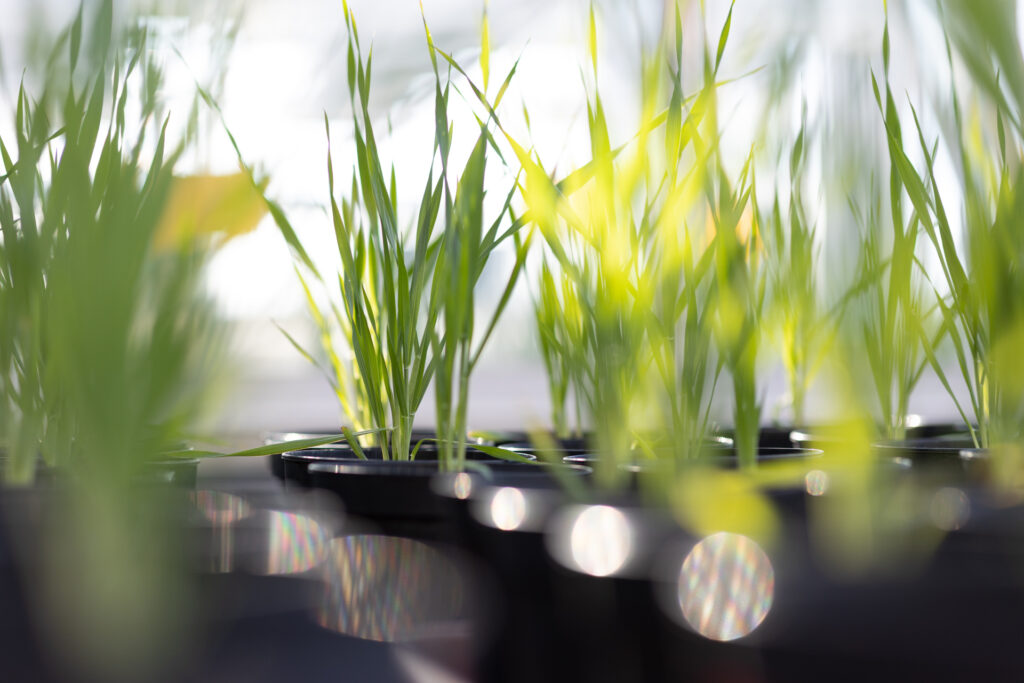CATRIN, a partner of OP JAK project focused on breeding new generation crops
The TANGENC project, supported by the Jan Amos Komenský Operational Programme (OP JAK), will help to breed new, resistant crops with higher yields. Under the leadership of the Institute of Experimental Botany of CAS, CATRIN scientists from Palacký University will be one of the partners in the project. The project succeeded in the competition of 74 projects in the Top Research call and received the highest score in the agricultural science section.
“CATRIN scientists will be doing research on seedlings and roots and their response to stress, as well as develop methodologies for genome editing. There are six research objectives. The one I am leading includes activities preparing society and breeders for the use of new breeding techniques. These are designed to help produce climate-resilient crops with the help of new tools and knowledge. In addition to sharing knowledge and experience with Czech growers, it will be important to exchange scientific knowledge in the context of regulatory policies in EU member countries, for which we will use our extensive contacts within the EU-SAGE network or the European Federation of Biotechnology (EFB),” explained research package leader Ivo Frébort, who is also Vice President of the EFB.
The research consortium will receive €435 million for the five-year project, entitled New Findings for Next Generation Crops, which will start in October. Eight top scientific teams not only from IEB and CATRIN, but also from the Institute of Biophysics of the CAS, Charles University, Masaryk University and Palacký University will participate in the project. They will study plants of particular importance to the Czech Republic and for which extensive genomic resources are available, such as barley (Hordeum vulgare), oilseed rape (Brassica napus) and peas (Pisum sativum), which can fix nitrogen in the soil and are a source of protein.
According to the consortium members, interdisciplinary research is one of the important prerequisites for using new biotechnological methods to serve modern agriculture as soon as possible. In particular, this will involve editing hereditary information, which is the basis for new breeding practices. “Classical breeding approaches are too slow and inefficient to be able to deliver better crops adapted to a changing climate at the pace needed. Fortunately, the discovery of genome editing techniques allows scientists to apply new breeding techniques, but their potential in the EU can only be fully exploited through intensive communication with users, consumers, legislators and politicians, as well as the general public,” added Frébort.

CATRIN has succeeded in OP JAK calls at several occasions. The project Technology beyond the nanoscale (TECHSCALE), whose principal investigator is Michal Otyepka from CATRIN, ended up with the second highest score among all projects recommended for funding. The researchers will develop new nanomaterials and technologies that will contribute to solving two current global challenges: the generation and storage of renewable energy and the development of new materials to improve the quality of life. The project will also include assessing the societal impact and public acceptance of new technologies. CATRIN is also a partner in the Centre of Excellence in Regenerative Medicine project, whose main applicant is the Institute of Experimental Medicine of the CAS.
The Jan Amos Komenský Operational Programme has allocated a total of CZK 8 billion to support cutting-edge research projects. The aim was to support excellent teams, which will increase the involvement of Czech research organisations in international cooperation networks and in the long term will also contribute to strengthening the competitiveness of the Czech Republic.

